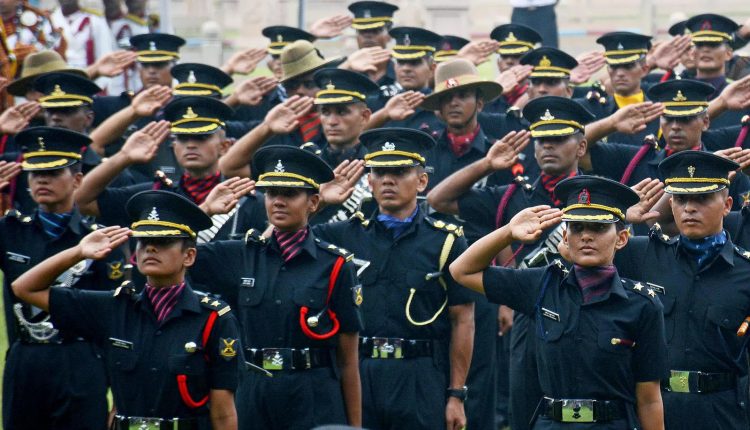NewDelhi: One of the most disciplined institutions in India is the Indian Army. Operating on the basis of discipline and loyalty, the Army carries out the work through rigorous training routines and strict adherence to protocol. A small mistake can bring about serious repercussions, given that the risks associated with national security are very high.
The presentation in films and literature or social media or even the pictures of Army soldiers might bring out some glimpses of the life of an Army soldier but the real picture is far tougher. The atmosphere is one where a single mistake might risk the nation’s safety. Throughout the years, there have been a few unique cases of Army personnel being involved in treason or espionage. The Indian Army, in such situations, not only has strict punishments to mete out but it has also put across the point that the safety of the country is paramount. Let’s take a look at the way the Indian Army handles such occurrences, the disciplinary process, and the kinds of punishment that military law prescribes.
For the Army, the process of an inquiry begins with the setting up of a Court of Inquiry (CoI) when a soldier or military personnel is charged with a crime such as treason or discipline. This step is similar to the police registering a First Information Report (FIR).
The primary task of the CoI is to gather evidence, take statements from witnesses, and draft a report. However, it is of utmost importance to highlight that this juncture of the process does not entail the sentencing of the accused soldier.
Once the CoI concludes its inquiry, the journey moves on to the Court Martial. The commanding officer of the accused person prepares a detailed charge sheet on the basis of the CoI inquiry report. After that follows the General Court Martial (GCM), where the case is presented, and the GCM suggests disciplinary actions regarding punishment. It should be noted, however, that the decision of the GCM is subject to the approval of higher authorities before punishment is actually carried out.
According to the Army Act, personnel who are accused of wrongdoing get the opportunities to exercise their rights of appeal. They may file a Pre-Confirmation Petition to the Army Commander or a Post-Confirmation Petition to the government. If these do not prevail, the accused has the option to approach the Armed Forces Tribunal (AFT). The tribunal has the power to cancel the sentences if they are found to be unreasonable or excessive.
Depending on the intensity of the crime, the Indian Army permits the imposition of the following stringent penalties:
Treason: Personnel if caught in a crime of breaking the law by waging war against India or by helping the enemy may be sentenced to life in prison or fined.
Espionage: Giving secret information to a foreign nation or enemy forces could result in imprisonment or even the death penalty in the most extreme cases.
Abandoning Post: Leaving an assigned post without authorization could lead to imprisonment or death sentence in grave lapses of duty.
Inciting Mutiny or Rebellion: Persuading subordinate or any soldier to uprising against the dignitaries may incur a life sentence or even 10 years in prison with a fine.
Apart from these punishments, the Army has other administrative means to control the actions of personnel. This encompasses expulsion from service, demotion, abolition of future benefits, mandatory of pension, and stopping of salary increments.
The Indian Army’s unyielding stance against treason or indiscipline is not just about punishment but about the national security. Soldiers, no matter who, if they make laws, are meted the penalty very swiftly and heavily. In that scenario, discipline is not just a good quality; it is the architecture of the defence apparatus. Violations of this character, particularly those involving national interests, receive rectitude devoid of any compromise, which serves as an unambiguous illustration to others.



Comments are closed.